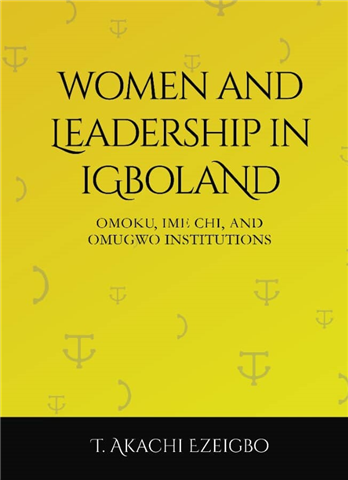Books by T. Akachi Ezeigbo

women and leadership in igboland
In this monograph, the author examines women’s leadership roles in three spheres of influence under women’s control: Omoku, Ime Chi and Omugwo institutions and argues that there were a variety of leadership opportunities open to Igbo women in the past – some of them still exist today and will continue to exist in the years to come – through which they exerted and can still exert their influence to ensure the well-being of their families and communities. With Women and Leadership in Igboland: Omoku, Ime Chi and Omugwo Institutions, the author empowers women with the knowledge that, like their fore mothers, they have a right to hold leadership positions not only in the home but also in the workplace and public space.

Loading the next 20 Records..…